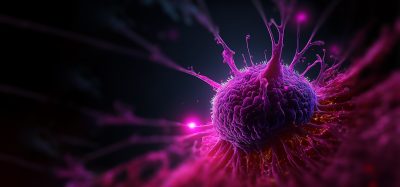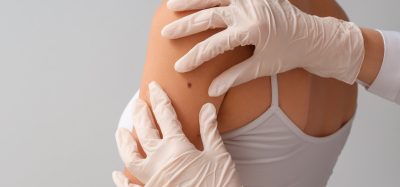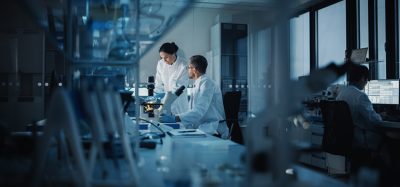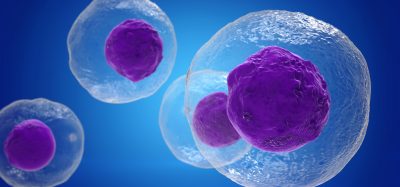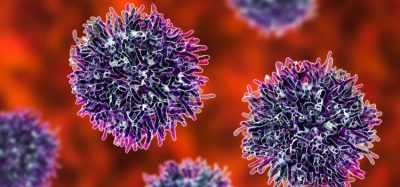Women in Stem with Vicky Marsh Durban
Posted: 21 May 2024 | Vicky Marsh Durban (Molecular Devices) | No comments yet
Join us for our Women in Stem series with Dr Vicky Marsh Durban, Director of Custom Organoid Services at Molecular Devices. Her highly successful career began with a PhD from Cardiff University in 2008 focusing on cancer genetics. She then completed a post-doctoral research scholarship at UCSF and a Research Fellowship at the European Cancer Stem Cell Research Institute, before becoming Principal Investigator at ReNeuron. She also held the Lead Scientist, COO and CEO positions at Cellesce.
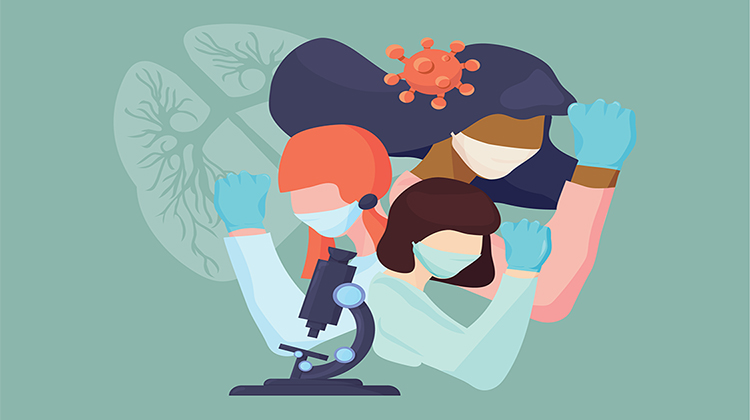

Can you tell us about your journey in STEM, what inspired you to pursue a career in the field, and the challenges you encountered along the way?
My journey in STEM started off in academia. At school, I enjoyed sciences and anything practical—anything that was hands-on, where I could get stuck in. At university, I chose to combine my interests in biology and chemistry and take biochemistry. I didn’t know a huge amount about what biochemistry was but got lucky because I did enjoy it. Following on from my Bachelors’ degree research project, I stayed at Cardiff University to do my PhD and that’s what got me into cancer research.
After I finished my PhD, I chose to take the opportunity to combine my first academic role with living overseas, and went to the US, taking up a Postdoctoral Researcher post at the University of California, San Francisco. I would say that the opportunity to travel is a real plus for careers in STEM. You can take it anywhere—scientific research is the same in every lab around the world. I spent three and a half years working in the US, and what I learned there was as much cultural as scientific. People’s backgrounds and cultural influences have a bearing on what they do and how they work, and I learned a lot from their different approaches. Although it’s an English-speaking country and we have a lot of exposure to US culture in the UK, I was still surprised by the cultural differences. There’s a tendency for British people to be much more reserved and to play down their achievements. The thing that I really learned from the US is that there’s no shame in talking about your successes. The social norms in the UK are to be much more modest, and not to shout about your achievements. Particularly for women, there’s the sense that it’s not good to brag.
On returning to the UK, I went back to Cardiff University, taking up a very junior independent position within the European Cancer Stem Cell Research Institute (ECSCRI). It was an extremely tough period in my career, needing to balance lab work and data generation alongside applying for grants, without any additional pairs of hands to help. The grant funding landscape in academia is intensely competitive—you can be in the top three percent of applicants for a grant and still not have it funded. At around the same time, I took a one-year career break to go on maternity leave. The time away from the academic environment really made me think about whether academia was for me, and where else I could apply myself.
On returning from maternity leave, I spent just a few months back in academia before I decided to move to industry. Ending up at a small start-up, which has since become Molecular Devices, I took on the challenge of commercialising new technology in an underdeveloped market. I discovered that I really enjoyed the business side of things and thinking about how the science fits into commercialisation, strategy, and a business plan. It was completely unexpected, as I thought I was a bench scientist through and through.
Could you share an example of a specific project or research that you have worked on and the impact it has had in your field?
The project that I worked on the longest, that has had the most impact, has been the organoid work. However, I would say that the impact has been less on the scientific side and more on the industrialisation and commercialisation of this exciting technology.
As an undergraduate and as a doctoral candidate, I studied intestinal biology in a lab that used mostly animal models, because they were the only appropriate models that were available at the time. There were no relevant in vitro cell models available to answer the questions that we were asking. When the first seminal discoveries and papers came out describing the methods for organoid culture and use, the lab started using organoids straight away. Although I wasn’t working with organoids directly at the time, I saw first-hand their immediate effect of replacing animals in the lab.
My background in research has definitely helped me to communicate the value of organoids to customers and scientists and commercialise Molecular Devices’ bioreactor technology effectively.
As a woman in STEM, what unique perspectives or strengths do you believe you bring to your work?
Imposter syndrome is real for a lot of women. We need to recognise it while staying true to ourselves. You might not be a stereotypical dominant character that’s typically considered the persona of a successful leader or executive, but that doesn’t mean you can’t be effective in that role. You just have to understand your personality, be adaptable and work to your strengths, rather than try to be someone that you’re not. It’s not always about being the loudest voice in the room or even having all the answers. There is space to be quietly confident and still be humble in any STEM application and boardroom.
A lot of it is about empathy and having that intuition to understand other people’s feelings, other people’s motivations, and what message is going to resonate with them. I’ve enjoyed developing strategic partnerships with people outside of my company. Science is very collaborative and you can’t achieve what you want to in isolation. You have to have that openness to share your goal and understand how you can reach it together.
What advice would you give to young women who are considering a career in STEM but may be hesitant due to societal stereotypes or perceived challenges?
I don’t think that it’s harder for women to enter careers in STEM, at least not in the scientific field—cell biology—that I have predominantly worked in. This is not the case across all STEM disciplines, and there is perhaps still more of a barrier for women to get into engineering and physics. My observation is that biology is more female-weighted, but this is primarily in junior roles. The bottom heaviness of the hierarchy is still an issue—there are fewer women in senior leadership teams.
Alongside the well-recognised barriers of balancing the continued societal expectation of women as being primary caregivers and home-makers with the “always-on” culture of most STEM disciplines, another challenge I have noticed as being more specific to women is the need to feel like you have to have all the training and experience before you go into a new role. This is particularly true for the transition into leadership roles. I challenge this thinking; there’s so much you can learn on the job, and in fact many skills that you can only learn while doing the job! Most of it is common sense and just because you don’t have experience doing something doesn’t mean you can’t do it. To have the humility to say when you need more explanation or don’t know an answer is uncomfortable for a lot of people, particularly women, because it’s a vulnerable position to be in. But if you do, you’ll learn faster.
How do you see the representation of women in STEM changing over the years, and what further progress do you believe is needed?
I expect to see the proportion of women in leadership positions increase as those in junior positions move through the ranks. At Molecular Devices, we have an unusually strong female representation throughout the entire hierarchy, which I think is just amazing and was certainly not the case in other organisations I have worked in. The boards at startups and investment organisations tend to be very male-dominated. For women to increase representation in boardrooms, they need to be able to see female role models at the top to understand what is possible and how to be effective.
In your opinion, what can organizations and institutions do to create a more inclusive and supportive environment for women pursuing STEM careers?
Women continue to bear the greater burden of domestic duty and working mothers in particular are often still caught in a “no-win” situation. Other parents can often have judgmental attitudes towards women who work away from home a lot, who can’t drop their kids to school every day, or can’t participate in parent-involvement events in schools. Conversely, expectations in work can make it difficult to balance home life, particularly for events that take place outside of normal working or school hours.
In corporate, there needs to be more flexibility to enable women to function at a higher level when they have other demands on their time. As a leader, one approach I usually take to enable this is to allow everyone on my team as much freedom as possible in managing their own work patterns and schedules to best fit their demands outside of work life. As long as the work is getting done, I don’t mind where or when it is done.
How has your work in STEM contributed to advancements or improvements in your field, and what potential future applications or implications do you foresee based on your work?
Organoids are poised to completely overhaul the drug discovery process. These 3D cell cultures model human biology more accurately than animal models, allowing researchers to screen compounds more effectively and reduce failure and attrition rates.
Molecular Devices has the cell line development technology to produce organoids at the scale required for high-throughput drug screening. In fact, ours is the only company to offer a service to produce organoids at a scale of tens of millions. Traditionally, large-scale cell culture demanded round-the-clock oversight in labs, but our technology uses automation and AI to scale organoid growth 24/7, reducing human error and finding strong drug candidates more quickly.
Organoids are being used in more and more clinical trials. We all want to get to the stage where the next blockbuster drug couldn’t have been discovered any other way.
About the author
Dr Vicky Marsh Durban, Director of Custom Organoid Services at Molecular Devices


Vicky Marsh Durban is Director of Custom Organoid Services at Molecular Devices, where she helps researchers access large batches of standardised, assay-ready organoids, provided at scale using a patent-pending bioprocess technology.
Vicky’s journey started with a PhD from Cardiff University in 2008, focusing on cancer genetics. Her path led her to University of California, San Francisco (UCSF), where she held a post-doctoral research scholarship investigating targeted therapeutic approaches in malignant melanomas. She returned to Cardiff in 2014 for a Research Fellowship at the European Cancer Stem Cell Research Institute.
In 2016, she embraced her first commercial role at ReNeuron, excelling as Principal Investigator. Her rise continued at Cellesce, from Lead Scientist to COO and CEO by 2021. The acquisition of Cellesce by Molecular Devices in 2022 celebrated Vicky’s leadership.
Related topics
Cancer research, Organoids
Related organisations
Molecular Devices
Related people
Dr Vicky Marsh Durban (Molecular Devices)



